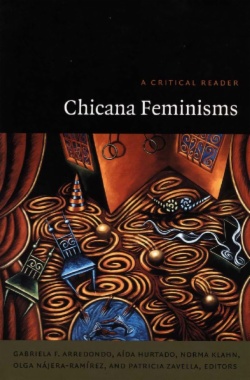<div>This interdisciplinary volume sets out to illuminate medieval thought, and to consider how the underlying values of the Middle Ages exerted significant influence in medieval society in the West.</div><div>The book situates the Christian Church in the West as a framing ideology of the Middle Ages, and considers ideology from four angles: as a means of defining power; as a way of managing power; ideology as an influence on daily living and societies; and the ways in which ideology associated with the Middle Ages continues to influence understandings of past and present. A focus on southern European case studies has been chosen as a means of enriching and complicating study of the Middle Ages.</div>
- Cover
- Contents
- List of Illustrations
- Foreword
- Sabaté — Introduction. Ideology in the Middle Ages
- PART 1: Ideology — A Definition of Power
- Freedman — Chapter 1. Ideology and Social Order
- Rucquoi — Chapter 2. Auctoritas, potestas: Concepts of Power in Medieval Spain
- Sacchi — Chapter 3. Kingship in Isidore of Seville’s Historical Work:
A Political Interpretation of the Two Versions
- Hernández Rodríguez — Chapter 4. The Quest for Ideology in Carolingian Times:
Ecclesiological Patterns in the Latin West from the
Eighth to the Early Tenth Centuries
- Melatini — Chapter 5. Spiritual and Temporal Power in Raymond Llull’s Arbor scientiae
- PART 2: Ideology — The Management of Power
- Marinas — Chapter 6. Regnum Gothorum and regnum Hispaniae in
Medieval Spanish Christian Chronicles: Continuation,
End, or Translation in their Accounts of the Arab Conquest
- Donat — Chapter 7. The Duel in Medieval Western Mentality
- Álvarez — Chapter 8. Royal Power and the Episcopacy:
Eleventh- and Twelfth-Century Relics from Oviedo Cathedral
- Barthélemy — Chapter 9. Chivalric Ideology in the Late
Twelfth-Century Chanson d’Aspremont
- Craciun — Chapter 10. Adoration of the Magi and Authority
of the Medieval King: An Ambiguous Correlation
- Naegle — Chapter 11. Ideology and Civic Ideal in French
and German Cities in the Late Middle Ages
- Todeschini — Chapter 12. Economy and Religion in Late Medieval Italy:
Markets in the Christian City
- PART 3: Ideology in the Mind
- Pociña — Chapter 13. The Relationship between Mentality and Ideology:
Acculturation and Christianization in Galicia, 500–1100
- Mancinelli — Chapter 14. The Foundation of the Franciscan Friary of the Sant Esperit, Valencia:
Rule, Economy, and Royal Power in the Fifteenth-Century Crown of Aragon
- Antunes — Chapter 15. Metamorphosis of the Green Man and the Wild Man in Portuguese Medieval Art
- Bertoli — Chapter 16. Military Models for Nobles in Zurara’s Northern African Chronicles
- Salviati — Chapter 17. Lorenzo the Magnificent:
From Pseudo-Dynastic Polity to the Ottoman Model
- Charageat — Chapter 18. Political Ideology and Legal Identity: The Reform of
Juridical Deliberation in Aragon in the Fifteenth and Sixteenth Centuries
- PART 4: The Middle Ages as Ideology in Later Eras
- Amalvi — Chapter 19. The Middle Ages: Support for a Counter-Revolutionary
and Reactionary Ideology, 1830–1944
- Conesa — Chapter 20. The Middle Ages among Spanish Intellectuals
of the First Half of the Twentieth Century

